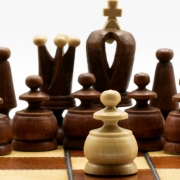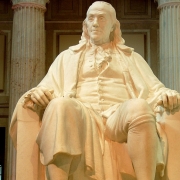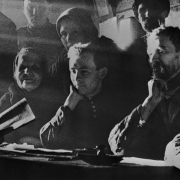Morality, What Is It? America’s Revolutionary Minds Wanted to Know. Some Still Do.
“A Moral History of the American Revolution and the Declaration That Defined It” is the subtitle for C. Bradley Thompson’s 2019 book, America’s Revolutionary Mind. However, the concept of morality is a high-level abstract idea. Unfortunately, in a country whose education, media, and political institutions wallow in moral subjectivism, it means different things to different people. Today, America’s dominant philosophy can be summed as: There are no absolutes. Just be a nice person. Love is the answer.
This 1960’s Age of Absurdity nonsense is anchored by the ideas of 18th century philosopher Immanuel Kant, who defined it as, “Morality is not the doctrine of how we may make ourselves happy, but how we make ourselves worthy of happiness.” This ambiguity is supported by another German philosopher, Georg Hegel, who believed “Genuine tragedies in the world are not conflicts between right and wrong. They are conflicts between two rights.”
This brings us to the most common view of moral questions, the difference between doing what is right and doing what is wrong. In the Christian tradition, pacifism is what is right: turn the other cheek, and St. Paul the Apostle, in his letter to the Galatians explains, “Love others as you love yourself. That’s an act of true freedom.” Yet, both moral codes require humility and self-denial.
Its because the religious morality of the premodern world (ante Age of Enlightenment), and the secular morality of the postmodern world (post Age of Reason) are commonly accepted in 2020’s American culture, that the moral principles of America’s founding are virtually unknown. In an effort to solve this false dilemma, Center for Individualism has created a Facebook group whose purpose is to study each chapter of America’s Revolutionary Mind.
Our modest goal is to help members of our group and readers of this column answer the question below; one posed by Irina Dunaev in Ayn Rand’s 1936 novel, We the Living. After being sentenced to ten years in a Soviet gulag (a slow, horrific death sentence) because her brother was a snitch for the socialist criminal gang (like there’s any other kind), she asked her cousin Kira Argounova,
There’s your life. You begin it, feeling that its something so precious and rare, so beautiful that it’s like a sacred treasure. Now its over, and it doesn’t make any difference to anyone. But there’s something that should be understood by all of us. Only what is it, Kira? What?
In order to understand the moral code that created the most tolerant and prosperous society the world has ever known, we will begin reading and discussing Thompson’s book the week of November 30th, and cover one chapter each week through the week of February 22, 2021. To keep the conversation robust, ice breaker questions will be offered and examples that relate to current events will be encouraged. This is an open group, and it can be easily found searching the group name: Waking America’s Revolutionary Mind.
Membership is automatic once three simple questions have been answered to confirm your participation, which simply means – have an active mind. The foundational precept of human beings with an active mind is: Existence exists. The universe is all there is, and Its a Wonderful Life. The only thing that can go out of existence is that which is living. Therefore, it is imperative that morality, at its core, promotes life at its most robust.
To quote the Buffalo football fan whose sign was caught on national TV after the Bills won a fourth consecutive American Conference championship in 1993, “Deal With It America!” Americans of any nationality routinely do this. It, being reality.













